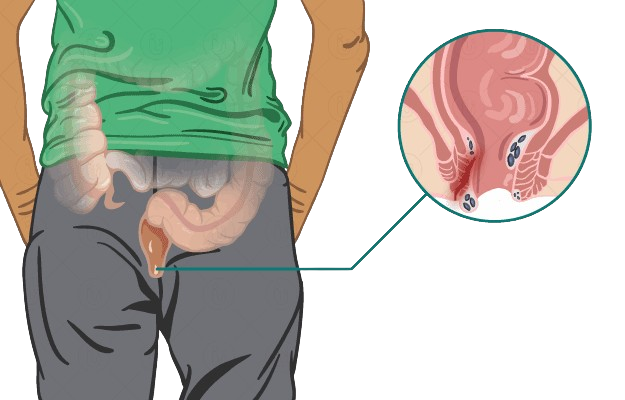Amavata

Amavata: An Ayurvedic Perspective
Amavata, also known as Rheumatoid Arthritis (RA) in modern medicine, is a debilitating condition characterized by chronic inflammation of the joints. In Ayurveda, Amavata is considered a manifestation of aggravated Vata dosha, often accompanied by vitiated Pitta and Kapha. This imbalance leads to the accumulation of Ama (toxins) in the joints, resulting in pain, stiffness, swelling, and eventual joint damage.
Causes of Amavata (Ayurvedic Perspective)
- Aggravated Vata – Imbalances in Vata due to factors like cold weather, excessive stress, irregular lifestyle, improper diet, and dehydration.
- Vitiated Pitta – Increased Pitta contributes to inflammation and tissue damage.
- Aggravated Kapha – Excess Kapha leads to sluggishness, fluid retention, and an increase in Ama.
- Accumulation of Ama – Poor digestion and metabolism cause the build-up of toxins, further worsening the condition.
- Genetic Predisposition – Inherited tendencies can increase the susceptibility to Amavata.
- Trauma – Injuries or trauma to the joints can exacerbate the condition.
Signs & Symptoms
- Joint Pain – Constant or intermittent pain in multiple joints, often symmetrical.
- Stiffness – Morning stiffness lasting for over an hour.
- Swelling – Inflammation and swelling of the joints.
- Limited Range of Motion – Difficulty in moving the affected joints.
- Fatigue – Chronic fatigue and weakness.
- Fever – Low-grade fever may be present.
- Weight Loss – Unexplained weight loss.
Diagnosis of Amavata
- Physical Examination – Detailed joint examination, assessing range of motion, tenderness, and swelling.
- Blood Tests – To check for rheumatoid factor, anti-CCP antibodies, and other inflammatory markers.
- Imaging Studies – X-rays, MRI, and ultrasound to assess joint damage and inflammation.
Ayurvedic Treatment Principles for Amavata
Ayurvedic treatment for Amavata focuses on balancing doshas, reducing inflammation, and enhancing joint mobility.
1. Balancing Doshas
- Vata pacification: Therapies like Abhyanga (oil massage) with warm sesame oil, Swedana (herbal steam therapy), and a Vata-pacifying diet.
- Rakta Shuddhi: Purifying the blood with herbs like Manjishtha, Guduchi, and Neem.
2. Reducing Inflammation
- Use anti-inflammatory herbs and therapies like Turmeric, Ashwagandha, and Boswellia to control inflammation.
3. Improving Joint Mobility
- Enhance flexibility and strength through Abhyanga (oil massage) and Swedana (sudation) therapies.
4. Strengthening the Immune System
- Modulating the immune response with immune-boosting herbs and strengthening practices.
5. Supporting Overall Health
- Emphasizing a healthy lifestyle, including a balanced diet, regular exercise, and stress management techniques.
Possible Ayurvedic Treatment Plan
Panchakarma Therapies:
- Abhyanga (oil massage)
- Swedana (herbal steam therapy)
- Vasti (enema)
- Virechana (therapeutic purgation)
- Raktamokshana (bloodletting)
Herbal Therapies:
- Ashwagandha, Turmeric, Boswellia, Guduchi, and other anti-inflammatory herbs will be prescribed.
Yoga & Meditation:
- Gentle practices like Hatha Yoga and Pranayama improve flexibility, strength, and reduce stress.
Dietary Modifications:
- Recommended Foods: Fresh fruits, vegetables, whole grains, and light, easily digestible foods. Include warming spices like ginger and cinnamon.
- Foods to Avoid: Cold, heavy, oily foods. Minimize red meat, dairy, refined sugars, and processed foods.
Prognosis & Complications
The prognosis of Amavata depends on the severity and early intervention. With early diagnosis and appropriate treatment, the outcome can improve significantly. Complications of untreated RA may include joint deformity, disability, and systemic complications affecting other organs.
Treatment of Rheumatoid Arthritis at Yogakshema Ayurveda Hospital
At Yogakshema Ayurveda Hospital, we offer customized treatments for Amavata. After a thorough consultation, a personalized treatment plan will be devised, combining Ayurvedic Panchakarma treatments, herbal therapies, Yoga sessions, and internal medicines.
Reservation Details:
To ensure personalized care, we recommend reserving your treatment at least one month in advance. Due to limited availability, we accept only a select number of patients each month to maintain high-quality care. A minimum deposit of 30% is required to secure your spot. The balance is due on the first day of your treatment.
